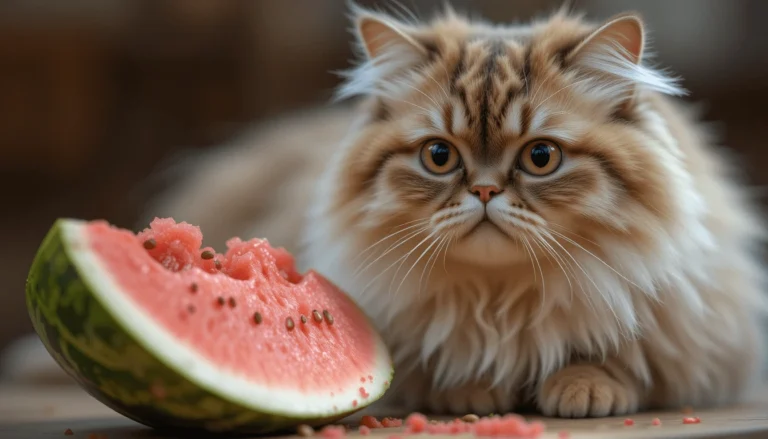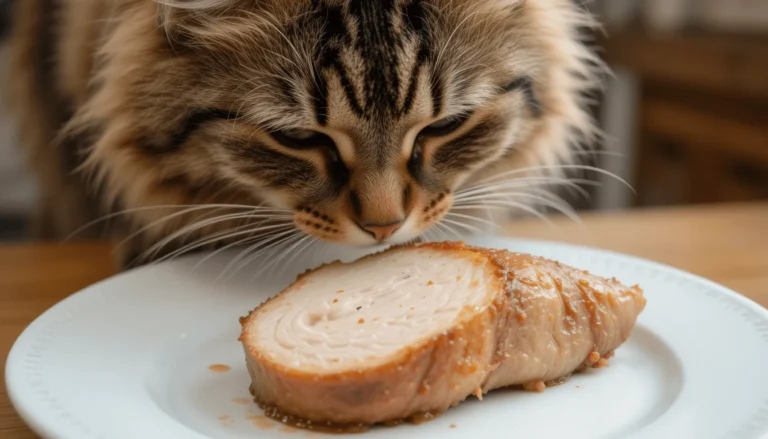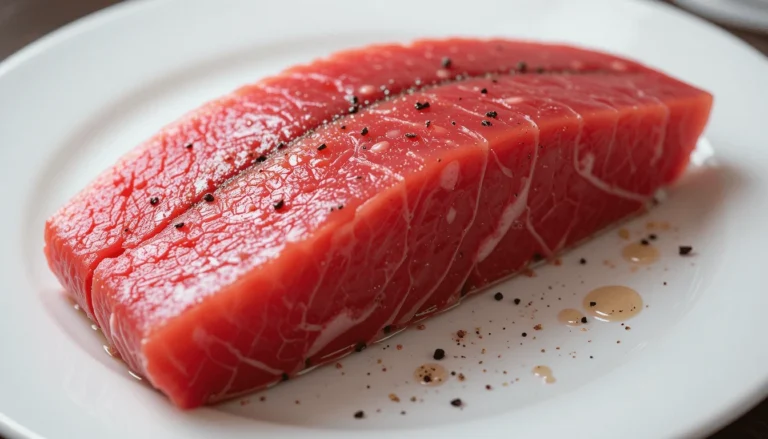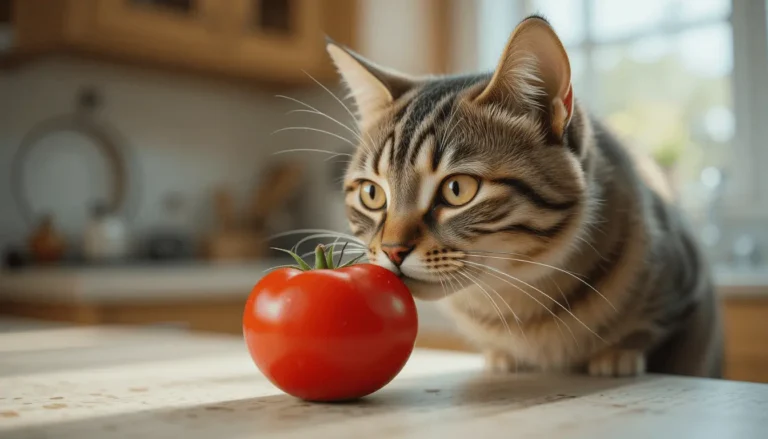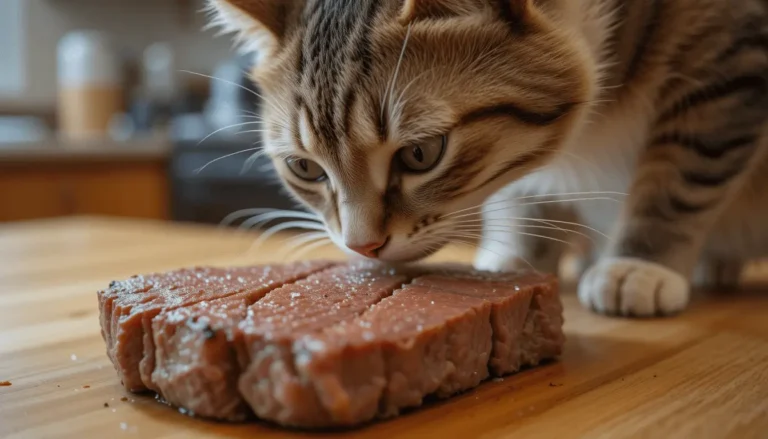Can Cats Eat Orange? Risks, Toxicity, and Safe Alternatives
Introduction
“You’re peeling an orange at the kitchen counter when your cat leaps up, sniffing intently. Those wide eyes and twitching whiskers make you wonder—can cats eat orange, or is this curiosity dangerous?* While your feline friend’s interest in your snack is adorable, the answer isn’t as simple as a yes or no. Oranges, with their vibrant color and zesty aroma, hide risks that every cat owner should know. Let’s explore why this citrus fruit could spell trouble—and what to offer instead to keep your kitty purring safely.”
Can Cats Eat Oranges? The Surprising Truth
Why Oranges Might Appeal to Cats (Curiosity, Scent)
Cats approach oranges with what scientists call “neophilia” – an attraction to novel stimuli. This explains why your cat might show interest in oranges despite having no biological need for fruit. Several factors contribute to this feline fascination:
- Your cat’s super-powered nose detects orange scents 14 times more intensely than you can imagine – what’s pleasant to us becomes assaultive to them’. The volatile oils in orange peel release intense aromatic compounds that stimulate their curious nature.
- Visual Stimulation: The bright color and round shape of oranges can trigger a cat’s hunting instincts, making the fruit seem like potential prey.
- Texture Exploration: The bumpy surface of orange peel provides interesting tactile stimulation for cats who investigate the world through touch.
However, this attraction is purely superficial. Dr. Sarah Wooten, DVM, explains: “Cats lack taste receptors for sweetness, so they don’t crave oranges like humans do. Their interest is purely investigative, not nutritional.”
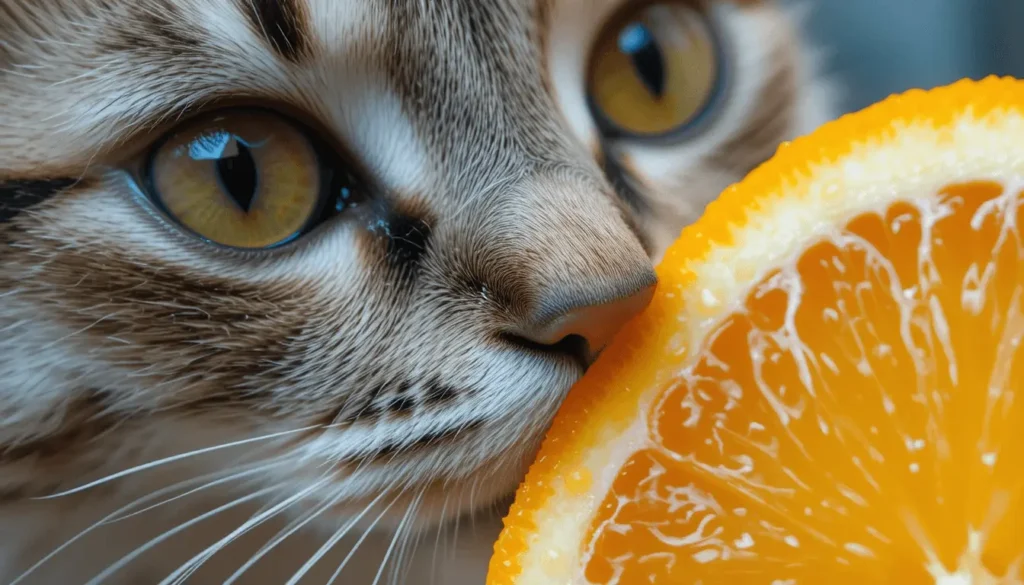
The Toxic Compounds in Oranges (Limonene, Linalool, Psoralens)
While oranges offer vitamin C and fiber for humans, they contain three primary compounds that can harm cats:
| Compound | Source | Potential Effects |
|---|---|---|
| Limonene | Peel and pith | Liver toxicity, neurological symptoms |
| Linalool | Essential oils | Depression, incoordination |
| Psoralens | All parts, especially peel | Photosensitivity, GI irritation |
The ASPCA Animal Poison Control Center notes that these compounds are more concentrated in:
- The peel (zest)
- The white pith
- Essential oils
- Seeds
Even small amounts can overwhelm a cat’s limited ability to metabolize plant compounds. Unlike omnivorous humans, cats’ livers aren’t equipped to process these substances efficiently.
Immediate Risks (Digestive Upset, Essential Oil Toxicity)
The consequences of orange consumption range from mild to severe:
Mild Exposure (licking or small taste):
- Excessive drooling
- Pawing at mouth
- Temporary loss of appetite
Moderate Ingestion (a few segments):
- Vomiting (often within 2-4 hours)
- Diarrhea
- Mild lethargy
Significant Consumption (peel or large amounts):
- Tremors or shaking
- Difficulty walking
- Photosensitive dermatitis (if juice contacts skin)
Dr. Tina Wismer, Medical Director of the ASPCA Animal Poison Control Center, advises: “While a tiny lick of orange flesh may not cause harm, we recommend preventing access altogether. The potential dangers far exceed any possible advantages.”
Symptoms of Orange Toxicity in Cats
If your curious feline has sampled an orange, you’ll want to watch for these warning signs. While not all cats react severely, citrus can cause concerning symptoms ranging from mild discomfort to serious health issues.
Mild Reactions to Watch For
Most cats experience digestive upset after consuming oranges. The most common symptoms include:
- Vomiting: Typically occurs within 2-4 hours of ingestion
- Diarrhea: May persist for up to 24 hours
- Excessive drooling: Indicates mouth irritation from citrus acids
- Mouth-pawing behavior: Signals the cat is feeling irritation
These symptoms often resolve on their own, but it’s important to ensure your cat stays hydrated. Offer fresh water and monitor their condition closely.
Severe Symptoms Requiring Immediate Attention
In cases where cats consume larger amounts or the more toxic parts (like peels), more serious reactions may occur:
- Neurological issues: Tremors, wobbliness, or muscle weakness
- Photosensitivity: Skin irritation if citrus oils contact their skin
- Lethargy or collapse: May indicate liver stress
- Labored breathing: A critical symptom requiring immediate veterinary attention
If you notice any of these severe symptoms, contact your veterinarian immediately. The ASPCA Animal Poison Control Center reports that prompt treatment significantly improves outcomes in citrus toxicity cases.
When to Seek Veterinary Care
You should call your vet if your cat shows:
- Multiple episodes of vomiting
- Signs of neurological distress
- Refusal to eat for more than 12 hours
- Any symptoms that worsen over time
Keep your vet’s number and the Pet Poison Helpline (855-764-7661) readily available for emergencies.
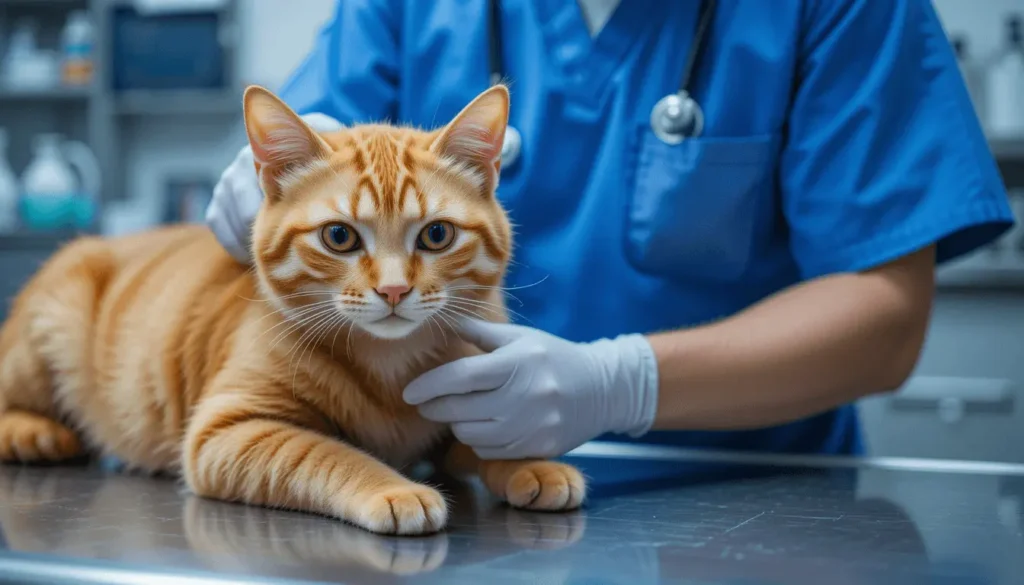
Safe and Healthy Alternatives to Oranges
While oranges are off the menu, these vet-approved alternatives can satisfy your cat’s curiosity without the risks.
Cat-Friendly Fruit Options
These fruits are safe in small quantities:
- Blueberries: Packed with antioxidants (serve 1-2 mashed)
- Watermelon: Hydrating and low-calorie (always seedless)
- Bananas: Offer small pieces as an occasional treat
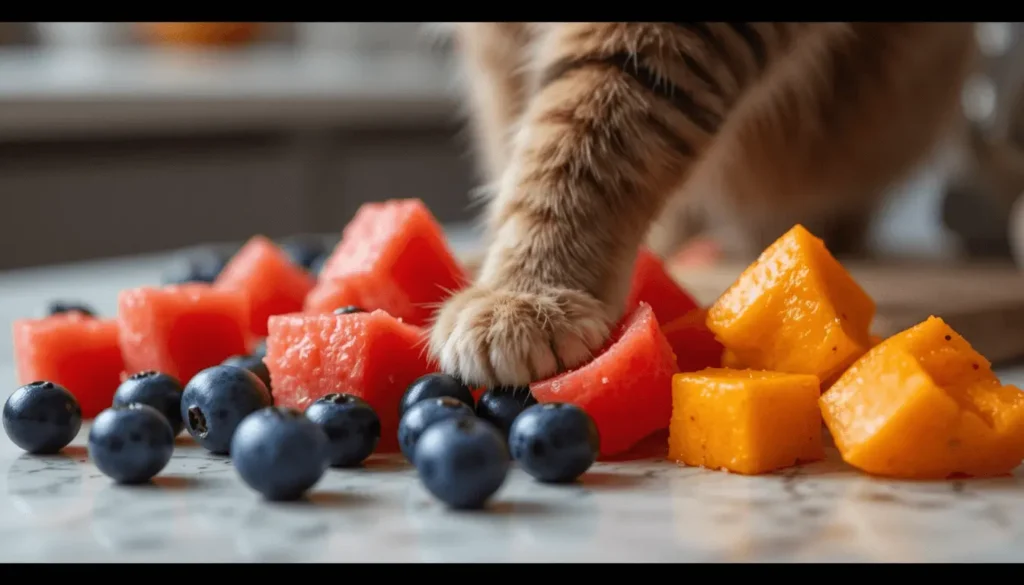
Remember that cats are obligate carnivores, so fruits should never make up more than 5% of their diet.
Vegetables Cats Can Enjoy
Some cats appreciate these cooked vegetable options:
- Steamed carrots: Soft and easy to digest
- Pumpkin: Great for digestive health (plain, not pie filling)
- Cooked green beans: A crunchy, low-calorie snack
Always introduce new foods gradually and in tiny amounts to monitor for any adverse reactions.
Commercial Treats vs. Human Food
When choosing between commercial treats and human food:
- Commercial treats: Formulated to meet feline nutritional needs
- Human food: Should only be given as occasional treats
- Best practice: Stick to products made specifically for cats
Look for treats with high protein content and minimal additives. The American Association of Feline Practitioners recommends choosing treats that complement your cat’s regular diet.
Wondering about other feline diet concerns? Check out our ” Safe Or Not ? Cat Food Guide ” for expert advice.
Conclusion
While that moment of your cat curiously sniffing your orange might seem harmless, we’ve learned that citrus fruits pose real risks to our feline friends. From mild digestive upset to more serious neurological symptoms, the potential dangers simply outweigh any potential benefits. Remember: cats are obligate carnivores who derive no nutritional value from oranges, and their bodies aren’t equipped to handle citrus compounds.
The good news? Plenty of safer alternatives exist to satisfy your cat’s curiosity without compromising their health. Whether it’s a few mashed blueberries, some steamed pumpkin, or high-quality commercial treats, you have many options to safely treat your pet.
As responsible pet owners, it’s our job to protect our cats from potential hazards while still allowing them to explore their world safely. When in doubt, always consult your veterinarian about introducing new foods. After all, isn’t your cat’s health and happiness worth being extra cautious?
FAQs
Q: CAN A SMALL PIECE OF ORANGE REALLY HARM MY CAT?
A: While a tiny taste of orange flesh probably won’t cause serious harm, it’s important to understand that any amount carries some risk. The degree of danger depends on:
- Which part was consumed (peel and seeds are most toxic)
- Your cat’s size and health (smaller or sensitive cats react worse)
- Quantity ingested
The ASPCA Animal Poison Control Center reports that even small amounts can cause:
- Mouth irritation (immediate drooling/pawing)
- Stomach upset (vomiting within hours)
- In rare cases, neurological symptoms from the essential oils
Q: MY CAT JUST LICKED AN ORANGE – IS THIS A MEDICAL EMERGENCY?
A: Here’s exactly what to do:
- Don’t panic, but stay vigilant
- Immediately remove any remaining orange
- Rinse your cat’s mouth with water if possible
- Watch closely for these red flags:
- Excessive drooling lasting >1 hour
- Repeated vomiting (more than 2 episodes)
- Unusual lethargy or loss of coordination
The Cornell Feline Health Center recommends calling your vet if you notice any concerning symptoms. For 24/7 advice, keep the Pet Poison Helpline number handy: (855) 764-7661.
Q: WHAT IF MY CAT SEEMS TO LIKE ORANGES – SHOULD I LET THEM HAVE SOME?
A: Absolutely not, and here’s why:
- No nutritional benefit: Cats can’t utilize vitamin C like humans
- Cumulative damage: Repeated exposure increases liver stress
- Better alternatives exist: Try these safe options instead:
- Frozen banana slices (tiny amounts)
- Cat grass for chewing satisfaction
- Commercial treats formulated for felines
Remember – just because your cat shows interest doesn’t mean it’s good for them. Would you let a child eat something harmful just because they wanted to? Your feline’s safety always comes first!



